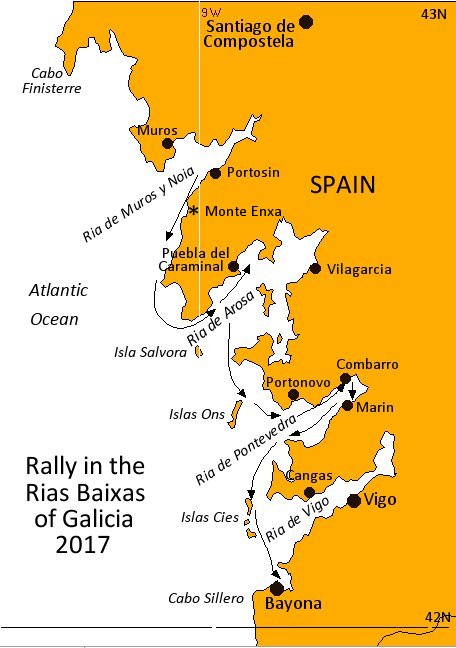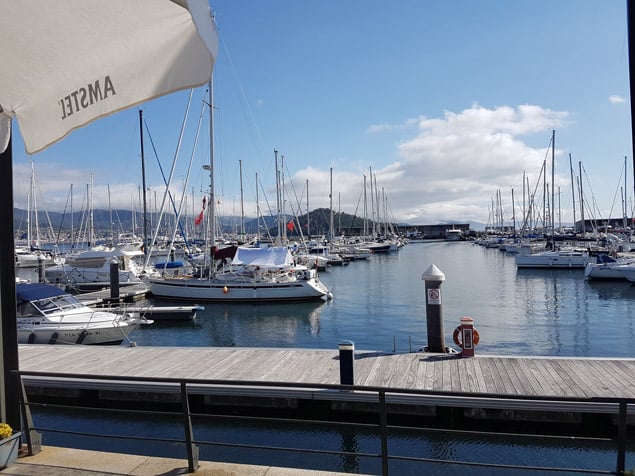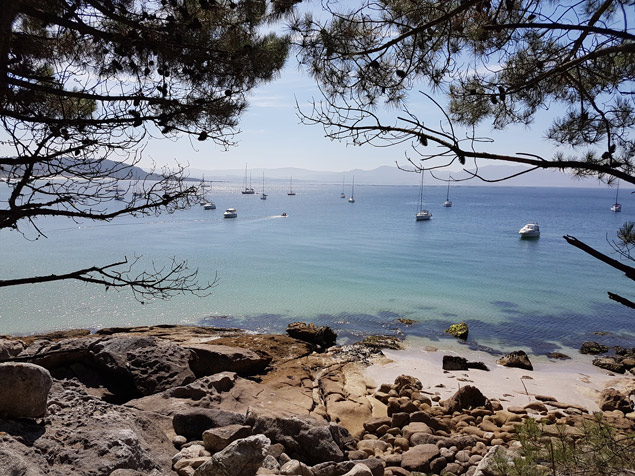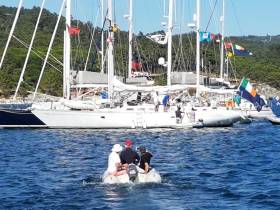Displaying items by tag: Northwest Spain
The sixty-boat twelve-day Irish Cruising Club Cruise-in-Company in northwest Spain comes to a conclusion in Bayona tonight after an impressive display of well-planned logistics by lead organiser Peter Haden and his team writes W M Nixon. This saw the many participants provided with a reasonable number of options in organised events afloat and ashore, yet at the same time there was plenty of scope for “cruises-within-the-cruise” for smaller groups of buddy-boats in the fleet.
 This chartlet indicates the broad movement southward of the 60-boat fleet – there were many options available for private ventures by smaller numbers of boats. In addition, with a significant Ocean Cruising Club contingent within the ICC membership, a joint meet with raft-up possibilities was organised with the OCC on Tuesday of this week at Ensenada de Barra. This produced a notable array of renowned cruising vessels, many of which have voyaged tens of thousands of miles.
This chartlet indicates the broad movement southward of the 60-boat fleet – there were many options available for private ventures by smaller numbers of boats. In addition, with a significant Ocean Cruising Club contingent within the ICC membership, a joint meet with raft-up possibilities was organised with the OCC on Tuesday of this week at Ensenada de Barra. This produced a notable array of renowned cruising vessels, many of which have voyaged tens of thousands of miles.
 The ICC fleet used both marinas and anchorages – this was one of the early overnights at Caraminal. Photo: Tansey Millerick
The ICC fleet used both marinas and anchorages – this was one of the early overnights at Caraminal. Photo: Tansey Millerick
While the early days of the rally saw some fog and even a spot of rain, as the fleet has progressed southward from Portosin towards Bayona the conditions have steadily improved, and they are now well clear of the unsettled weather which has been developing beyond the northern areas of the Bay of Biscay.
In fact, it is currently Galicia at its very best, and the organisers who calmly kept at the job despite numbers involved soaring through all expectations, and the many boats which voyaged both from Ireland and other places to share the ethos of this remarkable club in a very special setting, deserve much credit for a combined effort which well expresses the spirit of the Irish Cruising Club.
 Galicia at its best – a daytime beach anchorage off Ensenada de Barra. Photo: Tansey Millerick
Galicia at its best – a daytime beach anchorage off Ensenada de Barra. Photo: Tansey Millerick






























































